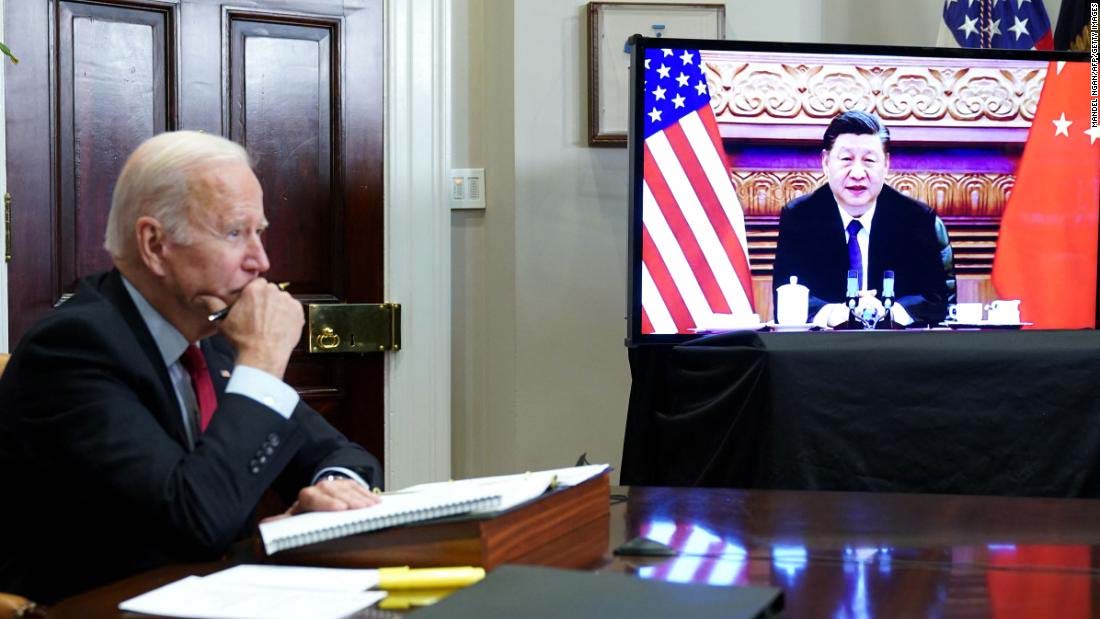
WASHINGTON, Nov 17 (NNN-AGENCIES) — The United States and China have agreed to ease restrictions on journalist visas shortly after a long-awaited virtual summit between its two leaders, with Beijing on Wednesday calling the move a “hard-won” achievement.
Washington regularly denounces the deterioration in China’s treatment of US media members, and has taken measures against Chinese media on US soil that have been accused of being Beijing’s propaganda organs.
In 2020, Beijing expelled Americans working for several major newspapers such as the New York Times, Washington Post and Wall Street Journal as tensions soared between the two countries.
But in the wake of a virtual summit between US President Joe Biden and his Chinese counterpart Xi Jinping, officials from both countries said they had agreed to allow new journalist visas to be issued.
A State Department spokesman said Tuesday that discussions in recent months had led to “some initial progress” in “a few areas” of the media environment.
The official said China had “committed to issue visas for a group of US reporters, provided they are eligible under all applicable laws and regulations.”
Beijing also promised to “permit US journalists already in the PRC (People’s Republic of China) to freely depart and return, which they had previously been unable to do,” the US official said.
Chinese state media said both sides had reached an agreement, including to “reciprocally approve” the visas of new journalists.
Both sides agreed to extend the validity of journalist visas to one year, after both countries had largely capped permits to three months.
Asked about the agreement Wednesday, Chinese foreign ministry spokesman Zhao Lijian told reporters that “this hard-won achievement is in line with the interests of media on both sides, and is worth treasuring.”
He added that Beijing hopes “both sides will put in place the relevant policies and measures as soon as possible.”
The US official added that Washington would continue to push for “expanding access and improving conditions for US and other foreign media,” and for broader freedom of the press in general.
The State Department believes these measures will allow US media correspondents to return to China “to continue their important work.” — NNN-AGENCIES










